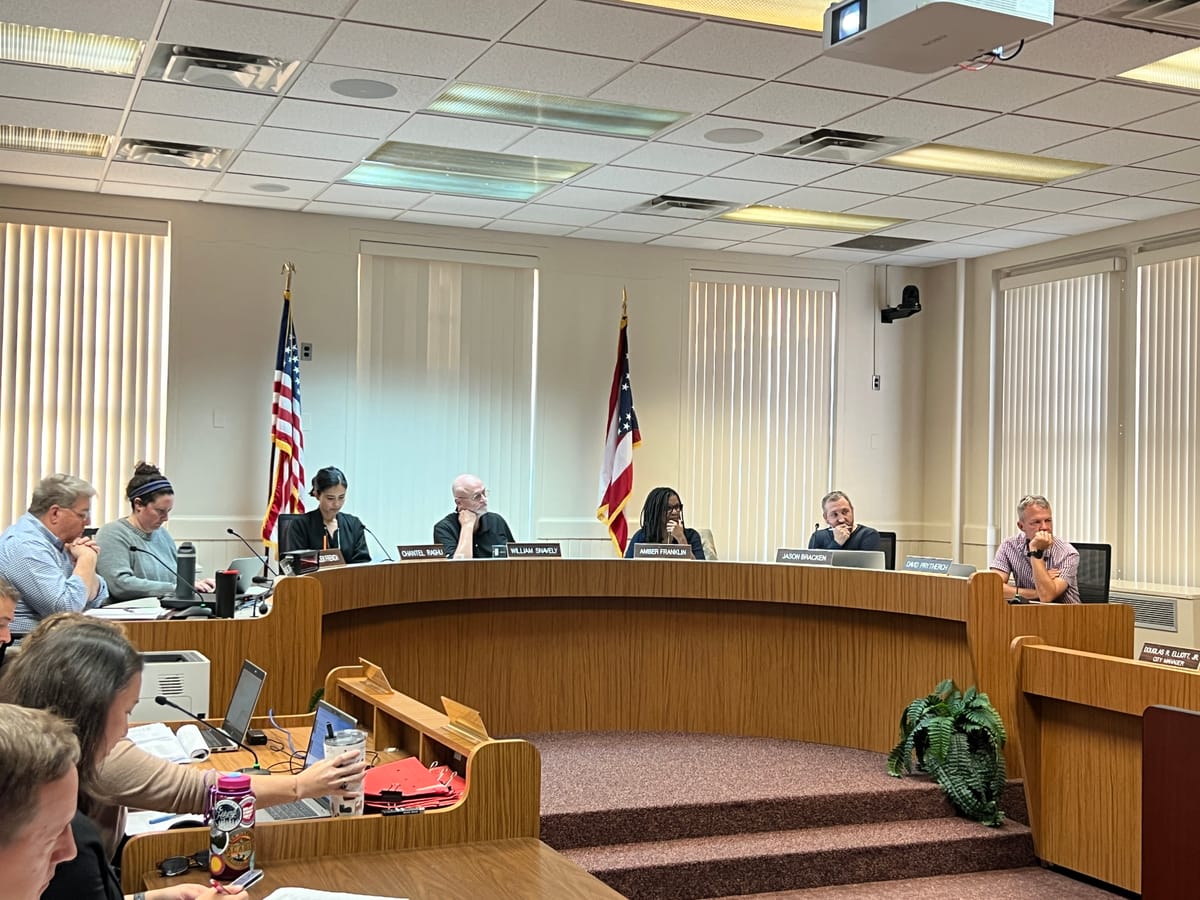Oxford OKs funding for Habitat for Humanity project, proposes short term rental restrictions
Oxford City Council approved the use of grants and ARPA funding totaling nearly $1.5 million to support a future Habitat for Humanity project on Chestnut Street. Later, community development director Sam Perry presented an ordinance to rein in the short term rental market.

Three resolutions put a future Habitat for Humanity development closer to reality at an Aug. 6 Oxford City Council meeting.
The city voted to apply $500,000 in American Rescue Plan Act funding from Butler County to support Habitat for Humanity of Greater Cincinnati and accepted a $990,000 grant from the Ohio Department of Development's Welcome Home Ohio funding to go toward a planned development. A third resolution accepted Habitat's proposal for a new development on West Chestnut Street consisting of up to 38 affordable housing units.
The Welcome Home Ohio funding applies $30,000 per unit for a total of 33 units. While Habitat for Humanity plans to construct 38 units in its Chestnut development, assistant city manager Jessica Green said the city opted to request slightly less money to help its chances in getting approved.
"We have a good history of working with Habitat," Mayor Bill Snavely said. "We're glad to welcome them back again."
An ordinance read for the first time later in the meeting would allow the city to sell the land for the development, which it currently owns, to Habitat for $1.
This summer, Habitat is finishing work on the last two houses of a 20-unit development off of Hester Road. Work on that development began in 2010.
The Welcome Home Ohio grant has a requirement that units must be built by May 2026, putting this development on a significantly tighter timeline than the organization's previous work in Oxford.
Joe Hansbauer, president of the Greater Cincinnati chapter of Habitat, said the new units will be available to anyone who fits the criteria for Habitat's program. The organization will partner with the city for targeted outreach to identify homeowners, he said. Habitat works specifically with first-time homebuyers who make 60% or less of the area median income and must put in 200 hours of "sweat equity" into their future homes.
City proposes restrictions on future short term rentals
Also during the Aug. 6 meeting, community development director Sam Perry presented an ordinance which would require that short term rentals such as Airbnbs in Oxford were owner-occupied. The goal of the ordinance would be to prevent remote property managers from buying properties in Oxford to turn them into short-term rentals for profit.
The city previously passed a moratorium on short term rentals to study the impacts of the increasing market. After study, Perry said his department decided that adding a primary residence requirement was most likely to meet the city's goal of minimizing convergence. The ordinance would not apply to short term rental properties that have already been permitted and does not include properties in the Mile Square.
Prytherch said he's seen a transformation even in his own neighborhood as absentee property managers displaced permanent residents. Now, Prytherch said some properties stand empty for large parts of the year when guests aren't visiting.
"It means that you can still do it in the weekends, you can still rent it out in the summer time," Prytherch said. "You can rent out your whole house, you can rent out part of your house, but it has to be your house, not just an investment property."
According to a staff report, Oxford has 69 active short term rentals, half of which have known locations. Only 27 are compliant with the city's requirement that property managers of short term rentals must obtain permits and registration. A majority of the properties that are rented for more than 90 days each year are outside the Mile Square.
The short term rental ordinance will be read a second time at the next city council meeting at 7:30 p.m. Tuesday, Aug. 20 in the Oxford Courthouse.




